Women in Landcare
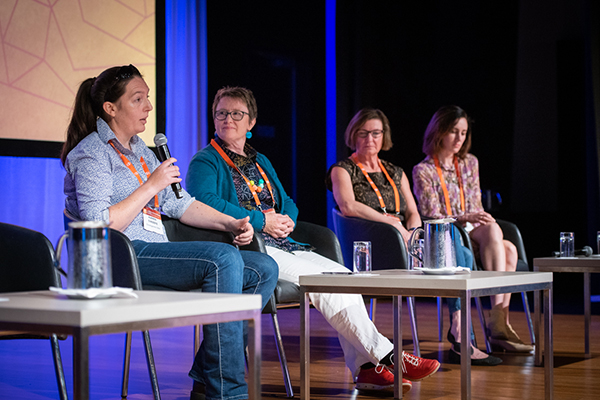
Women in Landcare panel discussion at the 2018 National Landcare Conference
Encouraging leadership, fostering connections and recognising contributions
Fifty percent of the 550 attendees and speakers at this year’s bi-annual National Landcare Conference were women.
So, it’s not surprising that the “Women in Landcare” panel discussion was well attended. Facilitated by Pip Courtney, ABC Landline host, it was an engaging conversation with four women who have demonstrated a remarkable commitment to Landcare.
The panellists, from urban and regional Australia, represented a mix of personal, professional and academic expertise in Landcare, including business, agriculture, the arts and society.
The session explored challenges faced and how these four women have effectively influenced change in their various areas:
Encouraging leadership opportunities for women in Landcare
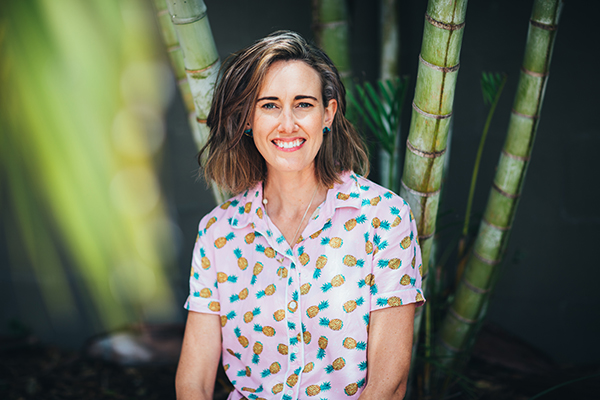
Naomi Edwards
Naomi Edwards is a change maker with a passion for meaningful community engagement. In 2015, this led her to co-found Intrepid Landcare, providing a common space to inspire, connect and empower young people to act and lead with Landcare.
Naomi said, “Intrepid Landcare provides that space, especially with inclusivity being at our core. That is one of the reasons why we have lots of women, along with diverse cultures and young people with disability and mental health concerns expressing interest to step up to act and lead with Landcare. Women represent 77% of people attending our leadership retreats. These events offer the opportunity for deep discussions about leadership, and ways we can lead in a way that is reflective of who we are and want to be.”
Fostering connections within the community
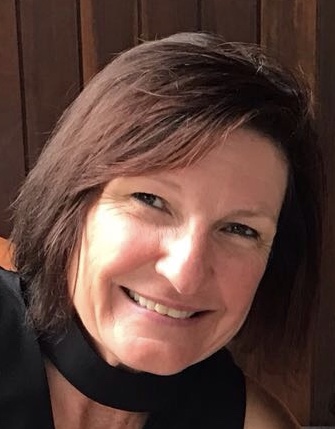
Margôt Tesch
In her 50s, Margôt Tesch and her husband left their IT consultancy, moving from Brisbane to a 10,000 acre cattle property. She says it was a shock, but it broadened her world perspective. In her Linkedin profile, she now titles herself, ‘Jillaroo and partner grazier’.
This change in vocation gave Margôt a unique understanding of the divide between city and rural dwellers. During the panel discussion, she recounted some of the difficulties she faced in transitioning from being a corporate executive in boardrooms wearing high-heels, to handling pliers and fencing in the long paddock.
One way Margôt has developed for coping with the isolation of rural life has been to connect women in new and meaningful ways by establishing Rural Women in Conversation. This forum enables women to build new connections with women they already know. Margôt says, “I wanted to create a safe place where they could pull down traditional social facades and explore themes and ideas with each other in ways that hadn’t been done before.”
Recognising the vital contributions of women in Landcare
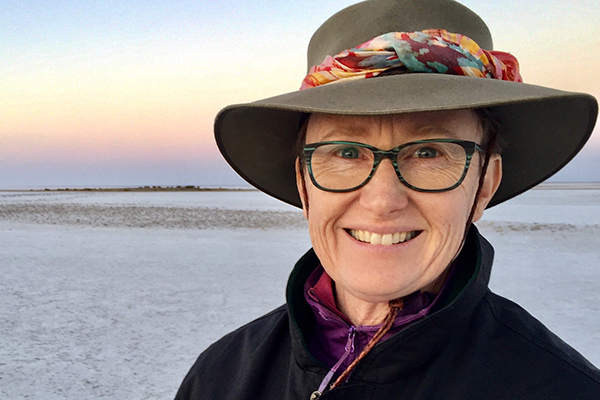
Liza Dale-Hallett
Women produce at least 49% of real farm income in Australia. However a Google search for ‘Australian farmer’ delivers 80-90% of images with men only.
Liza Dale-Hallett, Senior Curator, Sustainable Futures, at Museums Victoria is the Lead Curator for the Invisible Farmer, the largest ever study of Australian women on the land.
Liza said, “With this project we’re endeavouring to change this `invisible’ perception by honouring the contributions and leadership of farm women of the past, the present and into the future.
“We’re looking to create new histories of rural women, reveal their hidden stories on the land and learn about the diverse, innovative and vital role of women in agriculture, as well as stimulate public discussions about contemporary issues facing rural Australia and its future.”
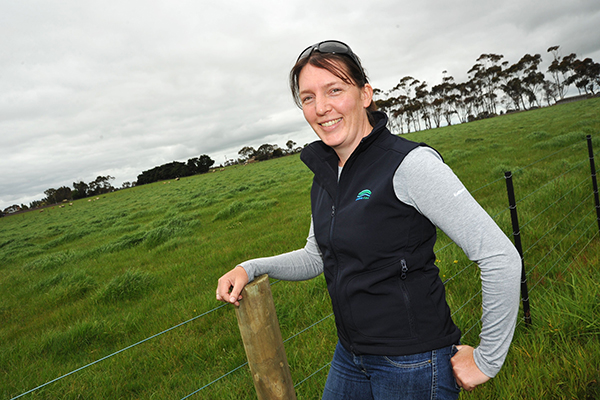
Karen O’Keefe
Karen O’Keefe is passionate about the environment, productive agriculture and increasing diversity in rural decision making. She has a personal background of growing up on a farm in Victoria and many years of professional experience in various Landcare roles. Karen has played a key role in a number of successful initiatives to increase the skills, knowledge and confidence of rural women. , including the Corangamite Rural Women’s Network, which aims to bring rural women from a range of backgrounds together with the goal of strengthening networks to enhance community resilience.
Karen shared four key steps about how to engage and empower local women:
- Recognise that unconscious bias exists, particularly in agriculture. While the role of women in agriculture is steadily evolving, despite making up half the agricultural workforce in Australia, women are significantly under represented and undervalued in positions of rural leadership and decision making.
- Identify and make a list of who some of the key trusted, influential women are in your community. You will most likely already know them. Some are quiet and behind the scenes people who connect and support others to get things done; others are the more prominent movers and shakers. Both play equally important roles.
- Connect with the influential women. Talk to them and ask them about what some of the needs and opportunities are to better support rural women in your community.
- Bring the influential women together and create community owned action. Facilitate a small group session and ask what the needs and opportunities are. Document, and see where it leads!



